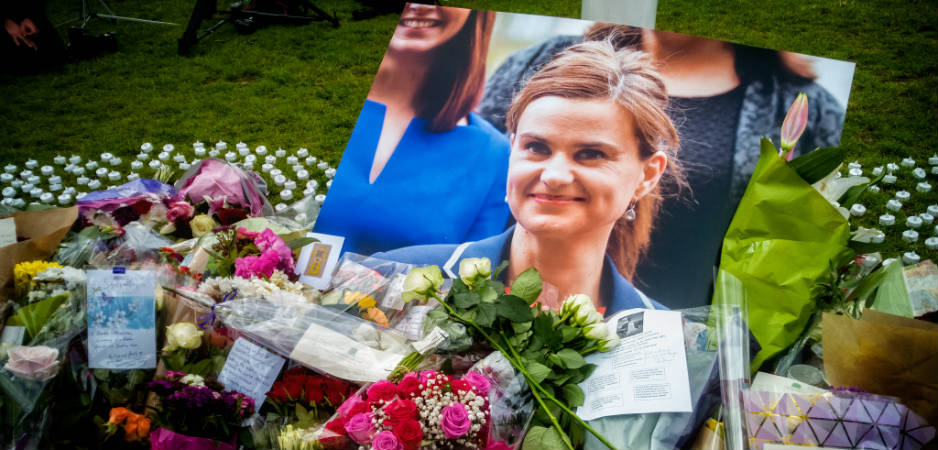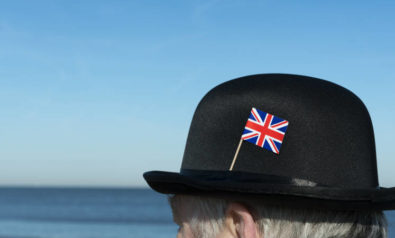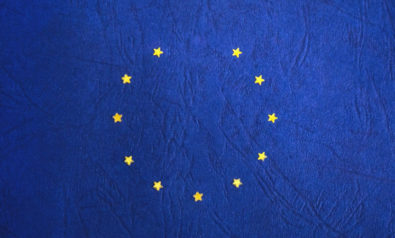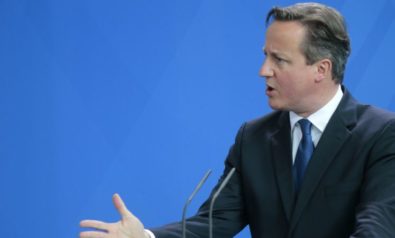With Brexit looming amid the tragic death of a British MP, the political climate has turned ugly.
We go through our daily lives, if not exactly forgetting the cruelties of injustice and grief that exist on every corner, but cushioned in our protective bubble of optimism that helps us deal with that knowledge by giving hope in the good of the world and the people who inhabit it. But ever so often, something so devastating happens that it bursts through our shield of comfort, making the world a dark, wretched place where you search and question yourself, and all of humanity, for the purpose of it all.
The savage attack on a gay nightclub in Orlando, Florida, was one such event. The targeting of a community that to this day faces unprecedented levels of persecution and hatred, in one place where it thought itself safe and accepted, broke hearts across the world. Men, women, transgender, gay, straight, religious, atheist, black and white, young and old, people have bonded over this tragedy as a rejection of the malice it embodied. The endless thousands of those who came out in memory of the victims in cities across continents was a testament of the will to believe in something good, in a climate of divisiveness, vitriol and angst that is today’s pre-election America.
Killing Jo Cox
The shocking murder of the young British parliamentarian Jo Cox was another such event. The attack on the mother of two brought back memories of the attempt on US congresswoman Gabby Giffords in Arizona in 2011. Except that Cox did not manage to survive.
Not yet well known to the wider public, Cox was elected to Parliament in 2015 following her decade-long career in humanitarian work with Oxfam that took her to some of the world’s most desperate places. She had vociferously spoken out against the war in Syria and urged for action to protect civilians, holding the UK and US governments accountable for inaction. She stood against racism and in favor of immigration, campaigning for the Vote Remain camp in the upcoming Brexit referendum. It was at one of the so-called open surgeries—a British tradition of meet-and-greet with members of parliament (MPs)—that she was shot and stabbed by a 52-year-old man with what appears to be far-right sympathies and a history of mental illness.
It was not the first such attack on British politicians, but it is the first death since 1990, when an IRA bomb killed Conservative MP Ian Gow. But Cox’s murder has hit the entire country to the heart because of who she was, what she believed in and what she was willing to do to fight for her beliefs. In today’s political climate of dissonance, she was, as the media will remind us now, one of the “good ones”—a person who served politics the way it was intended in its ideal, not what many have since perverted it to be. It is extremely rare to see a tribute to a political figure where tears flow so freely, from those who knew her and strangers equally.
The Mood is Ugly
“The mood is ugly, and an MP is dead,” as per The Guardian. Indeed, it seems almost impossible to view this very personal tragedy and loss as separate from the unease of pre-Brexit Britain. Both sides of the debate have been vitriolic and aggressive, supported by a whole ministry of misinformation, fact-bending and outright lies. Like the widely publicized claim by the Vote Leave campaign that the £350 million Britain sends to the European Union (EU) weekly that can be used to build a hospital a week in the UK. In case you have missed the Conservative Party’s policies toward the National Health Service (NHS), the welfare system, single mothers and disabled people over the course of their tenure, then you would have to be beyond remarkably naive to even think that this money would be used to build new hospitals.
There are endless arguments about the economic pros and cons of Brexit, many of which we will not find the answers to until the fateful referendum takes place on June 23. But the nasty tone of the immigration debate is having a palpable effect on the mood in Britain, and I find myself in the middle of it.
I have lived in the UK for nearly 15 years—in Scotland, down south and now, for the past 6 years, in London. I have come here to study, and have paid my fees, first as an international student and then as an EU citizen. I work for at an international nonprofit, I pay tax, I give to charity. And yet every once in a while I hear that I am here to take someone’s job, steal someone’s big London salary or push someone out of the housing market, somehow corrupt British culture even.
I am Russian, educated at an American school in Austria, and I came to the United Kingdom because I felt a kindred spirit with its people, for whom characteristics like gender, race or religion might come in useful in compiling a missing persons report, but not as a means of judging someone’s worth. I, like many of my friends, have come to London because we felt like it was more open, tolerant and endlessly more multicultural than many of the European cities we call home.
Just a few weeks ago, I cast my postal vote in the Austrian contest that missed electing a right-wing president by some 30,000 votes. I have chosen to live in the UK because I thought something like that could never come to pass here. And then I saw Nigel Farage’s latest immigration poster and something inside me shuddered.
The orphaned Syrian children that Jo Cox campaigned for being given asylum, the Polish plumber, the German banker—to use a few handy stereotypes—are all suddenly part of the palpable discomfort that a significant part of the British population seems to feel toward foreigners. Not to say that xenophobia never existed here, but I don’t remember it being so unabashed.
The debate about what economic way forward Britain should chose has become a quarrel about “other people.” EU, non-EU—all are suddenly outsiders, with no say or part in the discussion that affects us more directly than anyone. The orphaned Syrian children that Jo Cox campaigned for being given asylum, the Polish plumber, the German banker—to use a few handy stereotypes—are all suddenly part of the palpable discomfort that a significant part of the British population seems to feel toward foreigners. Not to say that xenophobia never existed here, but I don’t remember it being so unabashed.
People, Not Numbers
Thomas Meir, the man charged with Cox’s murder, has given his name in court as “death to traitors, freedom for Britain.” The questions about mental illness and terrorism and which term to use in the case of the man whom the media have been describing as a quiet gardening enthusiast are subject to another discussion. Much like Omar Mateen’s personal history that suggests a struggle with his own homosexuality, the line between murder in the name of a political cause or ideology and private chaos is often blurred. But the fact remains that these two very different people, from two very different countries, have tapped into the undercurrent of social malaise and nurtured their hate and obsessions on rhetoric and sentiment that we should all be working to eliminate from social discourse forever.
When the going gets tough, as it seems to be at the moment around the world, it is easy to forget that we were all cut from the same rib. Jo Cox internalized this belief in a common destiny, a refusal to see people as numbers, and fought to her death for an ideal society of justice and humanism. The 49 people who lost their lives inside the Pulse nightclub in Orlando understood the struggle to be accepted into this common destiny all too well, too.
The politics of hate and fear will always exist. I have no illusions. But in light of the last few days, when I had to struggle to remind myself that we do, indeed, live in the best and safest of times in human history, I can only hope that people like Jo Cox, along with more than 23,000 donors who have raised over £700,000 in her name in just two days, and all those who have held up a candle or closed their eyes in silence for the victims of the Orlando attacks will continue their vigil for the better angels of our nature.
The views expressed in this article are the author’s own and do not necessarily reflect Fair Observer’s editorial policy.
Photo Credit: Garry Knight / Flickr
 We bring you perspectives from around the world. Help us to inform and educate. Your donation is tax-deductible. Join over 400 people to become a donor or you could choose to be a sponsor.
We bring you perspectives from around the world. Help us to inform and educate. Your donation is tax-deductible. Join over 400 people to become a donor or you could choose to be a sponsor.
Support Fair Observer
We rely on your support for our independence, diversity and quality.
For more than 10 years, Fair Observer has been free, fair and independent. No billionaire owns us, no advertisers control us. We are a reader-supported nonprofit. Unlike many other publications, we keep our content free for readers regardless of where they live or whether they can afford to pay. We have no paywalls and no ads.
In the post-truth era of fake news, echo chambers and filter bubbles, we publish a plurality of perspectives from around the world. Anyone can publish with us, but everyone goes through a rigorous editorial process. So, you get fact-checked, well-reasoned content instead of noise.
We publish 2,500+ voices from 90+ countries. We also conduct education and training programs
on subjects ranging from digital media and journalism to writing and critical thinking. This
doesn’t come cheap. Servers, editors, trainers and web developers cost
money.
Please consider supporting us on a regular basis as a recurring donor or a
sustaining member.
Will you support FO’s journalism?
We rely on your support for our independence, diversity and quality.

































